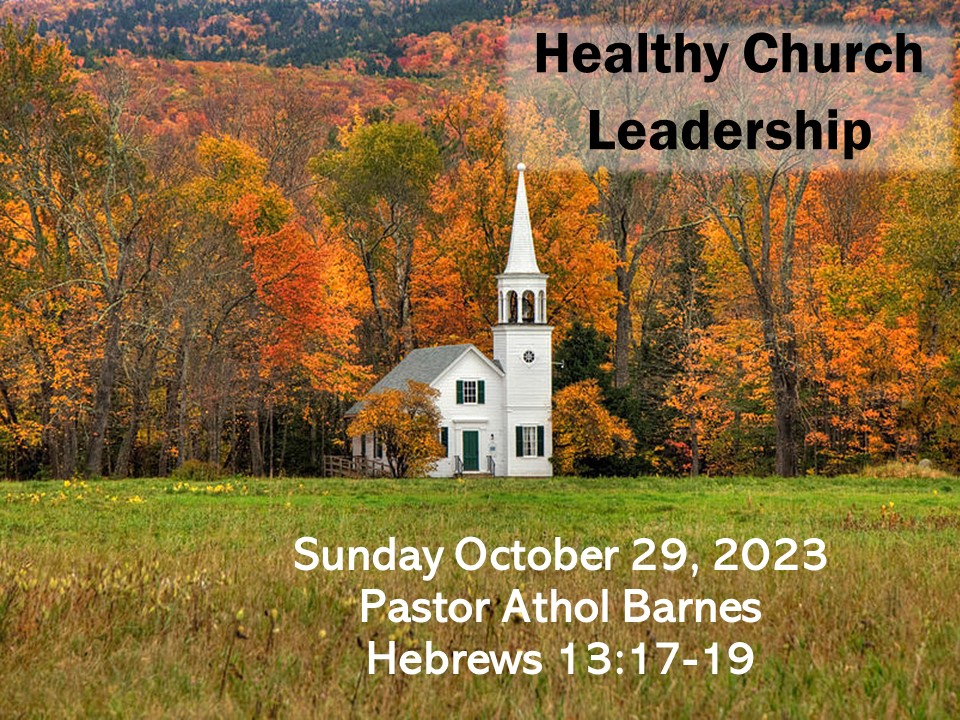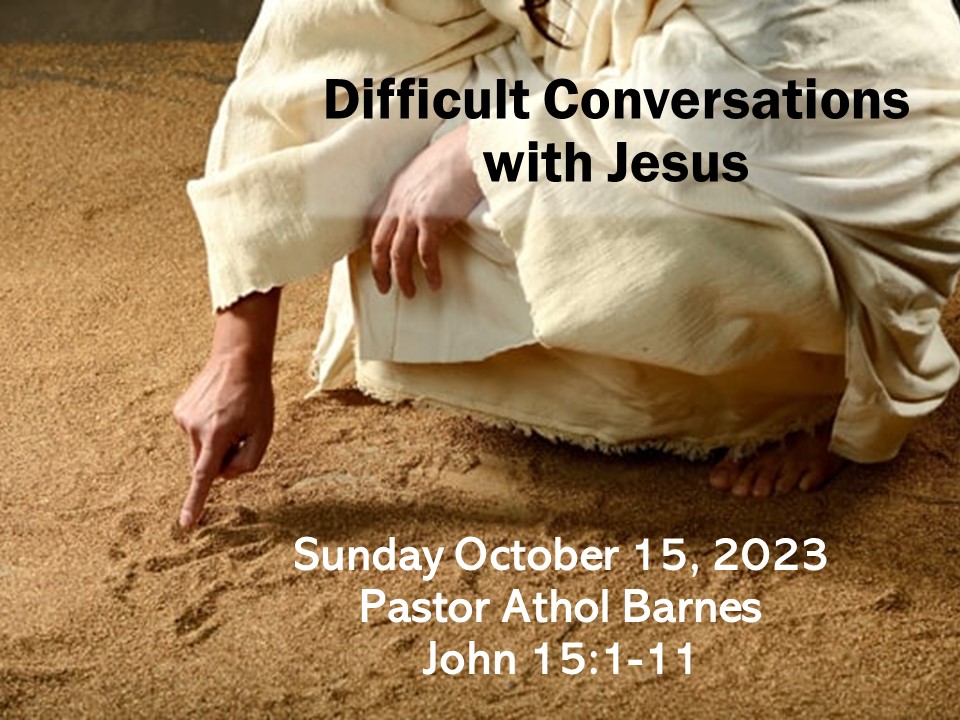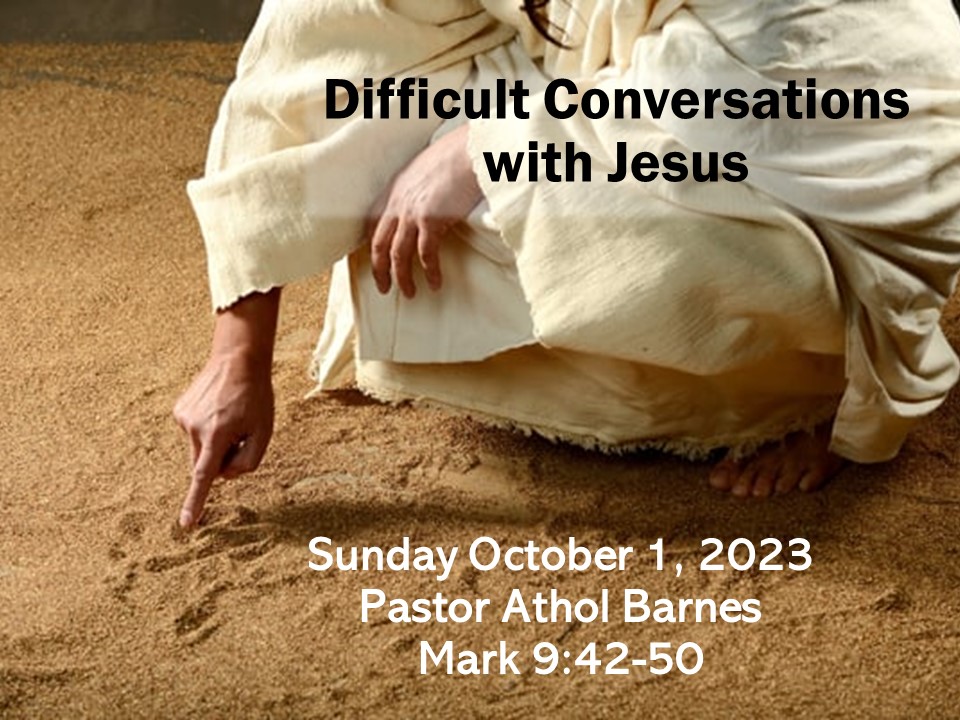
Pastors and churches don’t always have healthy relationships. Sometimes leaders fail to lead, and other times congregations do not follow. The author of Hebrews writes clearly about this as he closes the letter (see Hebrews 13:17-19).
Let’s look at what he says to the leaders first.
Leaders are People Who Lead
There is no shortage of training, books, and seminars on leadership, but sadly there is a lack of godly leaders in the church—leaders who lead humbly and selflessly like Christ.
The author points out three characteristics of a godly church leader:
Watchfulness
Hebrews 13:17 says church leaders keep watch over their congregation’s souls.
The picture here is of a shepherd who is vigilant as he sacrificially watches over the flock. The elders/pastors of the church are to primarily focus on the spiritual growth of the church.
What does that look like practically?
- Watch against false doctrine.
This is more than teaching the truth; it is also ensuring that people are not veering off into false doctrines (See Acts 20:28-30).
The enemy has always tried to twist the truth and infect the church with false teachers. The elders are to stand united in the truth as they proactively guard it.
- Watch against deceitful behavior.
In 3 John, John warns the church about a man called Diotrephes (3 John 9). Evidently, he was a man who loved the power of leadership and was full of pride. The church has always been susceptible to men and women who take advantage of position. The elders are called to expose and root out such behavior.
- Watch against divisive behavior.
Splits and factions in the church caused by divisive people will always be a challenge for leaders to identify and confront (see Titus 3:10-11). This divisiveness doesn’t just affect one or two people, it affects the whole church.
- Watch for spiritual growth.
The elders are to keep alert and diligent for the spiritual development of the church. We all have a responsibility to be growing in our faith and knowledge of the Word. The elders’ role is to keep people moving forward.
Accountability
Hebrews 13:17 says that Christian leaders will be called to give an account for how they performed their duties (see Hebrews 13:17). This is a sobering reminder for anyone in Christian leadership.
This accountability is two-fold:
- To the church.
Churches should expect that the pastor/elder maintains a Christian walk that sets an example for the believers.
2. To the Lord.
One day we will all stand before the Lord, and he will judge us based on our calling and the gifts that he has given us (see James 3:1). Church leaders should expect to give account for their leadership of the flock.
Conduct
Hebrews 13:18 reminds us that the behavior of the leader must set an example for the church.
Pastors are ranked based on their skills in preaching, administration, counseling, and others. But how highly do we rank their character?
The way a spiritual leader behaves in private and public must never waiver from his Christian convictions (see 1 Timothy 3:2). The history of the church is littered with men who have lived double lives and brought shame and destruction on the church. Character matters more than skills. A Christian leader whose character matches their convictions should be commended.
Congregations are People Who Follow
What is the response of the congregation?
Faithful leaders need faithful congregations who are committed to the mission of the church.
Sadly, in our entertainment saturated and individualistic society, we have many people who view the church as simply a convenient societal construct that we can attend or participate in as it suits us.
But the gathering of the Body of Christ is powerful and vital for all believers. This was tested during the COVID season in 2020 (see Hebrews 10:24-25).
We are called to stir one another up, holding each other accountable in areas of spiritual disciplines. This cannot happen if one attends church once a month.
As we come closer to Christ’s return, we must regularly encourage one another by meeting together. The days of passive church semi-attendance are over. We don’t value church because it has become too much of a convenience and not an essential priority when in fact we should prioritize gathering together over sports, schoolwork, family events, etc.
What characterizes a faithful congregation?
Obedience
Hebrews 13:17a tells us that obedience is required. This phrase conjures up pictures of authoritarian leaders forcing their subjects into submission, but this is not at all what is taught here.
The church is to obey and submit to the leaders as they see the leaders taking the responsibility seriously for caring for their souls. Servant leadership compels people to submit out of love. It is the model Jesus gave us.
Unity
Hebrews 13:17b tells us that it is to our advantage when we follow our leaders in unity.How we respond to leadership in the church affects the whole church. We are a family that is sometimes messy and sometimes challenging, but we are a family drawn together by the Spirit of God. We labor, learn, and share joy and grief together (see 1 Corinthians 12:26-27).
When the church walks together in unity, despite differences, it produces fruit that is profitable for the whole church.
Prayer
Hebrews 13:18 tells us to pray for our leaders. As leaders pray for the church, the church should pray for them. What if, instead of focusing on our leaders’ deficiencies, we prayed for the Lord to bless them?
Kent Hughes writes, “How different the modern church would be if the majority of its people prayed for its pastors and lay leadership. There would be supernatural suspensions of business-as-usual worship. There would be more times of inexplicable visitations from the Holy Spirit. More lay people would come to grips with the deeper issues of life. The leadership vacuum would evaporate. There would be more conversions.”
If we are to move forward in health as a church, it begins with the prayer meetings. The gathering of the church to pray is the most important meeting of the week.
Will you commit to follow our church’s leaders in unity and pray for us?





